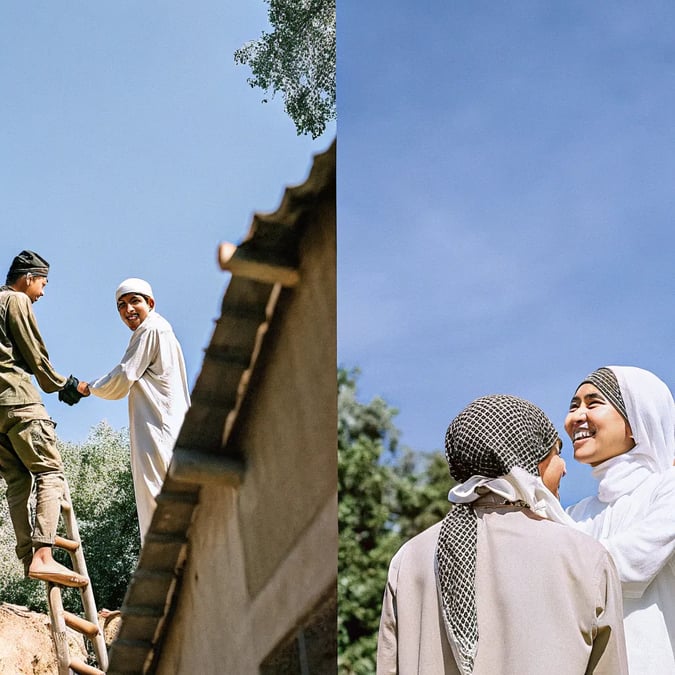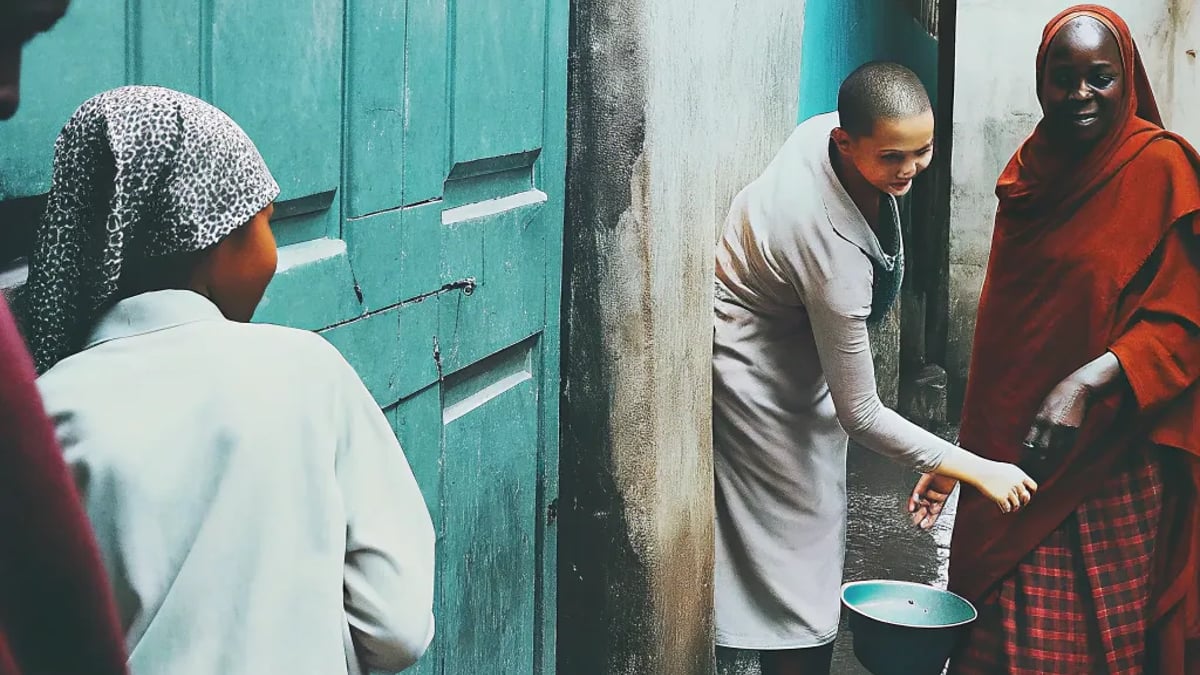
There's something profoundly transformative about stepping outside your comfort zone to serve others in unfamiliar surroundings. Volunteering abroad isn't just about lending a helping hand; it's an immersive journey that opens doors to authentic cultural experiences that typical tourism simply cannot provide. When you volunteer internationally, you're not just passing through—you're becoming part of the community fabric, even if only temporarily.
The Unique Value of Cultural Immersion Through Service
When I first considered volunteering abroad, I wasn't entirely prepared for how deeply it would affect my worldview. Many travelers seek authentic experiences, but there's something uniquely powerful about connecting with communities through meaningful service.
Unlike traditional tourism where interactions often remain surface-level, volunteering creates natural pathways to genuine cultural exchange. You're not just observing local life—you're participating in it. This distinction makes all the difference.
"The relationships formed while volunteering abroad often become the most treasured souvenirs," notes Maria Sanchez, international volunteer coordinator at Global Volunteers. "These connections transcend language barriers and cultural differences because they're built on the foundation of shared purpose."

This shared purpose creates a unique context for cultural understanding. When you work alongside local community members toward common goals, you gain insights that would otherwise remain hidden. You learn about cultural values not through observation alone, but through collaboration and shared experiences.
Breaking Down Cultural Barriers Through Shared Work
The volunteer experience creates natural opportunities for cultural barriers to dissolve. There's something universally connecting about working together toward a common goal, whether you're building a school in Guatemala, teaching English in Thailand, or participating in conservation efforts in Kenya.
Last summer, I spent three weeks volunteering at a community garden project in a small coastal town in Portugal. What struck me most wasn't the differences between myself and the local volunteers—it was how quickly those differences faded into the background when we were all covered in dirt, laughing about our gardening mishaps.
This phenomenon is well-documented. According to research published in the Journal of Cross-Cultural Psychology, collaborative activities create "micro-bridges" of understanding that help people transcend cultural differences more effectively than passive cultural experiences.
Understanding Cultural Sensitivity in Volunteer Contexts
One of the most challenging aspects of volunteering abroad is navigating cultural differences with respect and humility. Cultural sensitivity isn't just about avoiding offense—it's about approaching another culture with genuine curiosity and respect.
Before departing for any volunteer experience abroad, it's essential to:
- Research the cultural norms and taboos of your destination
- Learn basic greetings and phrases in the local language
- Understand appropriate dress codes and behavioral expectations
- Recognize your own cultural biases and assumptions
"The most successful international volunteers approach their service with humility and a willingness to learn," explains Dr. James Rodriguez, author of "Ethical Volunteering in Global Contexts." "They understand they're guests in someone else's home and culture."
This mindset shift is crucial. Rather than arriving as a "savior" with all the answers, effective volunteers recognize themselves as both givers and receivers in the cultural exchange.
Common Cultural Pitfalls and How to Avoid Them
Even with the best intentions, volunteers sometimes stumble into cultural misunderstandings. Some common pitfalls include:
Taking photos without permission—especially of children—can be invasive and inappropriate in many cultures. Always ask first, and respect when the answer is no.
Imposing your own cultural values or solutions without understanding local contexts can undermine the very communities you're trying to serve. Listen first, suggest later.
Dressing inappropriately can signal disrespect in many cultures. Research local dress codes before packing.
"I made the mistake of wearing shorts while volunteering at a school in rural Indonesia," shares Megan Thompson, a volunteer from Australia. "I quickly realized how uncomfortable this made the local teachers feel, even though they were too polite to say anything directly. The next day, I switched to long skirts, and the difference in how people related to me was immediate."
Selecting Ethical Volunteer Programs
Not all volunteer programs are created equal. Some prioritize meaningful community engagement and sustainable impact, while others unfortunately fall into the trap of "voluntourism"—short-term experiences that may do more harm than good.
When evaluating potential volunteer opportunities, consider these factors:
Community-Led Initiatives
The most effective volunteer programs are those that emerge from community-identified needs rather than external assumptions about what a community "needs." Organizations like Gateway International emphasize this approach, ensuring that volunteers support locally-determined priorities rather than imposing outside agendas.
"We always start by asking community leaders what they need, not telling them what we think they should have," explains Sofia Martinez from the Spanish Institute in Seville, which coordinates community engagement programs. "This approach ensures that volunteer efforts align with genuine community priorities."
Long-Term Impact and Sustainability
Consider how the program addresses long-term sustainability. Will your efforts continue to benefit the community after you leave? Does the program build local capacity or create dependency?
"Before committing to a volunteer program, ask about their theory of change," suggests environmental volunteer coordinator Thomas Chen. "How does your two-week contribution fit into their five-year plan? If they can't answer that question clearly, it might be a red flag."
Cultural Exchange vs. 'Saviorism'
Be wary of programs that market themselves with images of volunteers "saving" local communities. Ethical volunteer programs emphasize mutual exchange and learning rather than one-way assistance.
"The language organizations use in their marketing materials tells you a lot about their approach," notes cultural anthropologist Dr. Amina Diallo. "Look for words like 'partnership,' 'exchange,' and 'collaboration' rather than 'helping the less fortunate.'"
How Volunteering Transforms Personal Worldviews
Beyond the impact on communities, volunteering abroad profoundly shapes volunteers themselves. These experiences often challenge fundamental assumptions about different cultures, economic systems, and human connection.
Shifting Perspectives on Privilege and Gratitude
Many volunteers report a transformed understanding of their own privilege after volunteering in communities with fewer material resources but often rich social connections.
"I went to teach English in rural Peru thinking I had so much to offer," recalls volunteer Jamie Williams. "I came back having received far more than I gave. The community's approach to family, their connection to their food heritage, their resilience—it all made me question what real wealth looks like."
This perspective shift often translates into lasting changes in consumption patterns, career choices, and social values. A study by the University of California found that international volunteers were significantly more likely to pursue careers in public service and maintain simplified lifestyles after their experiences abroad.
Building Cross-Cultural Competence
In today's increasingly globalized world, the ability to navigate different cultural contexts is invaluable. Volunteering abroad builds these skills in ways that few other experiences can match.
"My time volunteering at a community center in Cusco fundamentally changed how I approach cross-cultural communication," shares marketing executive Sarah Johnson. "I learned to listen more carefully, to check my assumptions, and to recognize cultural differences without judgment. These skills have been invaluable in my international business career."
Maximo Nivel, an organization facilitating volunteer experiences in Peru, Costa Rica, and Guatemala, emphasizes how cultural immersion through activities like cooking classes and community meals creates deeper connections than traditional tourist experiences.
What Makes Cultural Connections Through Volunteering Different?
The Authenticity Factor
"When you volunteer abroad, you access parts of a culture that remain invisible to most tourists," explains cultural anthropologist Dr. Elena Vasquez. "You're invited into homes, included in family celebrations, and trusted with community stories."
This level of access comes with responsibility, but it also provides unparalleled opportunities for genuine cultural understanding. Volunteers often form friendships that transcend their service period, maintaining connections with host communities for years or even decades.
Shared Purpose Creates Deeper Bonds
Unlike typical tourist interactions, which often remain transactional, volunteer relationships are built around shared goals and collaborative work. This creates a fundamentally different dynamic.
"There's something about working side by side on a meaningful project that accelerates relationship-building," notes volunteer coordinator Michael Chen. "You skip the small talk and move straight to connection through shared purpose."
How Do I Choose the Right Volunteer Experience?
Selecting the right volunteer opportunity depends on numerous factors, including your skills, interests, time availability, and the type of cultural immersion you seek.
Aligning Skills with Community Needs
The most effective volunteering happens when your specific skills meet genuine community needs. Before committing to a program, honestly assess what you can realistically contribute.
"If you're not a trained teacher, signing up to lead a classroom might not be the best fit," advises education volunteer coordinator Lisa Mendez. "But perhaps your organizational skills could help with administrative tasks at a school, or your enthusiasm could make you an excellent assistant to a local teacher."
Short-Term vs. Long-Term Commitments
While longer volunteer commitments generally allow for deeper cultural immersion, even short-term experiences can be meaningful if structured appropriately.
"Two weeks might not be enough time to make a significant impact on a community project, but it can certainly begin a personal transformation," notes Dr. Rodriguez. "Just be realistic about what can be accomplished in your timeframe."
For those with limited time, look for established programs where short-term volunteers support ongoing initiatives rather than standalone projects that require continuity.
Preparing for Cultural Immersion: What Should I Know?
Language Preparation: How Much Is Enough?
While fluency in the local language isn't always necessary, learning basic phrases demonstrates respect and opens doors to deeper connections.
"Even just learning to say 'hello,' 'thank you,' and 'the food is delicious' in the local language can transform your volunteer experience," suggests language educator Maria Gonzalez. "People appreciate the effort, even when it's imperfect."
Many volunteer programs offer language lessons as part of their orientation process. Take advantage of these opportunities, and consider using language learning apps before departure to build basic vocabulary.
Managing Expectations vs. Reality
One of the biggest challenges volunteers face is reconciling expectations with on-the-ground realities. Programs may look different in practice than they do in brochures, and cultural adjustment takes time.
"I expected to make an immediate difference," shares former volunteer Jake Thompson. "But my first week was mostly about learning—how the community functioned, what the actual needs were, and how I could fit in without disrupting existing systems. The meaningful work came later, once I understood the context."
What Are the Lasting Impacts of Cultural Immersion Through Volunteering?
Personal Growth Beyond the Experience
The impacts of volunteer abroad experiences typically extend far beyond the service period itself. Many volunteers report lasting changes in their worldview, career trajectory, and personal values.
"After volunteering in a community health program in Thailand, I completely changed my career path," shares medical student Alicia Chen. "I saw how social determinants of health were as important as clinical interventions, which led me to pursue public health alongside my medical training."
Building a Global Perspective
Perhaps the most significant lasting impact is the development of a more nuanced global perspective. Volunteers often return home with a more complex understanding of global issues and a stronger sense of global citizenship.
"You can read about global inequality or environmental challenges, but experiencing these realities firsthand through volunteer work creates a different kind of understanding," explains sociology professor Dr. Martin Rodriguez. "It becomes personal in a way that academic knowledge alone cannot achieve."
How Can I Maintain Cultural Connections After Volunteering?
The end of a volunteer placement doesn't have to mean the end of cultural connection. Many volunteers maintain relationships with their host communities for years after their service.
Digital Connection in the Modern Age
Social media and communication platforms make it easier than ever to maintain international friendships. Many volunteer programs now create digital spaces where past volunteers can stay connected with local staff and community members.
"Our WhatsApp group from my volunteer project in Ghana is still active three years later," shares former volunteer Samantha Williams. "We share updates about our lives and the ongoing community projects. It's a beautiful way to maintain those connections."
Continued Support and Advocacy
Many volunteers find ways to continue supporting their host communities from afar, whether through fundraising, awareness-raising, or return visits.
"After volunteering with a women's cooperative in Morocco, I started importing their handcrafted products to sell at markets in my hometown," explains entrepreneur Lisa Johnson. "It's a small way to maintain our connection while supporting their economic independence."
Is Volunteering Abroad Right for Everyone?
While volunteering abroad offers tremendous opportunities for cultural connection, it's not necessarily the right choice for everyone.
Honest Self-Assessment Questions
Before committing to an international volunteer experience, consider:
- Are you comfortable with ambiguity and the unexpected?
- Can you adapt to different living conditions, foods, and cultural norms?
- Are you open to having your assumptions challenged?
- Do you have skills that align with community needs?
- Are you prepared for the emotional challenges of cross-cultural immersion?
"Volunteering abroad isn't a vacation—it's often challenging, uncomfortable, and emotionally complex," cautions volunteer coordinator Thomas Chen. "But for those who approach it with the right mindset, those very challenges become the source of its transformative power."
The Gateway to Lasting Cultural Understanding
Volunteering abroad creates unique pathways to cultural understanding that few other experiences can match. By combining service with immersion, volunteers often develop nuanced perspectives that transcend stereotypes and simplistic narratives about different cultures.
"The most powerful aspect of volunteering abroad isn't what you give—it's what you receive," reflects longtime international volunteer Sarah Martinez. "You gain a new lens through which to see both the world and yourself. That's a gift that continues giving long after you've returned home."
For those seeking authentic cultural connection beyond tourist experiences, volunteering abroad offers a gateway to deeper understanding—one that requires openness, humility, and a willingness to both serve and be transformed in the process.
Tags

About Elliot Navarro the Author
Elliot Navarro is a seasoned travel writer who has spent over a decade delving into the heart of diverse cultures across five continents. His expertise lies in embedding himself within local communities to truly experience the vibrant tapestry of languages, traditions, and lifestyles that define them.
Recommended Articles
No Rinse Body Wipes Seniors Love for Easy Clean Anytime
Discover the convenience of no rinse body wipes for seniors, promoting hygiene and making personal care easier anytime, anywhere.
Ranked: The Candy Bars Americans Love Most
Discover the fascinating world of America's favorite candy bars, where classic flavors like Snickers and Reese's Peanut Butter Cups reign supreme while newcomers and artisanal treats vie for attention in a landscape of evolving tastes. From regional preferences to the exciting convergence of candy and protein bars, this article unveils the sweet dynamics reshaping America's confectionary cravings and hints at the irresistible trends shaping the future of our sweet tooths.
The Candy Bar Everyone’s Fighting Over This Year
Dive into the candy craze of 2025 as an unexpected nostalgic chocolate bar sweeps the sweet-toothed nation, skyrocketing to the top of candy rankings and inciting store aisle skirmishes fueled by scarcity, social media buzz, and celebrity endorsements. Discover how this simple yet sensational confection has turned into a coveted status symbol and whether it truly lives up to the hype, as it reshuffles long-standing favorites on the candy shelves to become the season's hottest indulgence.
Fun Hobbies Seniors Are Loving in 2025
Discover how seniors are reshaping retirement life with trending hobbies in 2025 that blend creativity, activity, and social connection, from captivating photography and dance classes to innovative virtual reality adventures. Whether capturing meaningful moments or exploring new talents, these pursuits are enhancing older adults' mental and physical wellbeing, offering a vibrant, fulfilling lifestyle for every interest and ability.
Living with a Host Family: The Deepest Travel Experience I’ve Had
Dive into the transformative world of cultural immersion as the author shares their profound experiences of living with host families across the globe, from mastering homemade tortilla española in Spain to embracing the art of kintsugi in Japan. This article not only highlights the joys and challenges of navigating new family dynamics but also offers practical tips on finding the perfect host family for a truly authentic travel experience that promises lifelong connections and insights far richer than fleeting tourist encounters.




